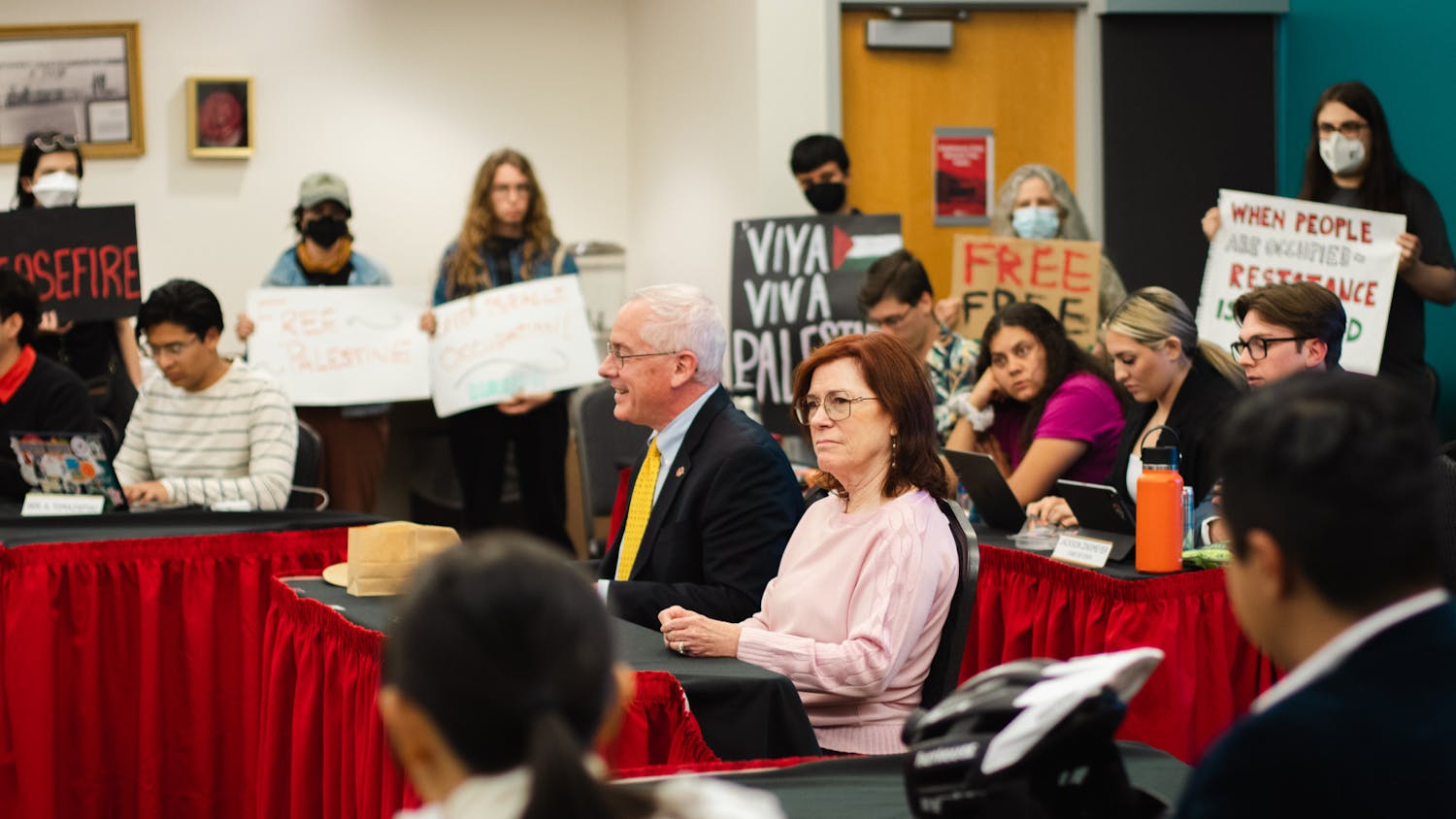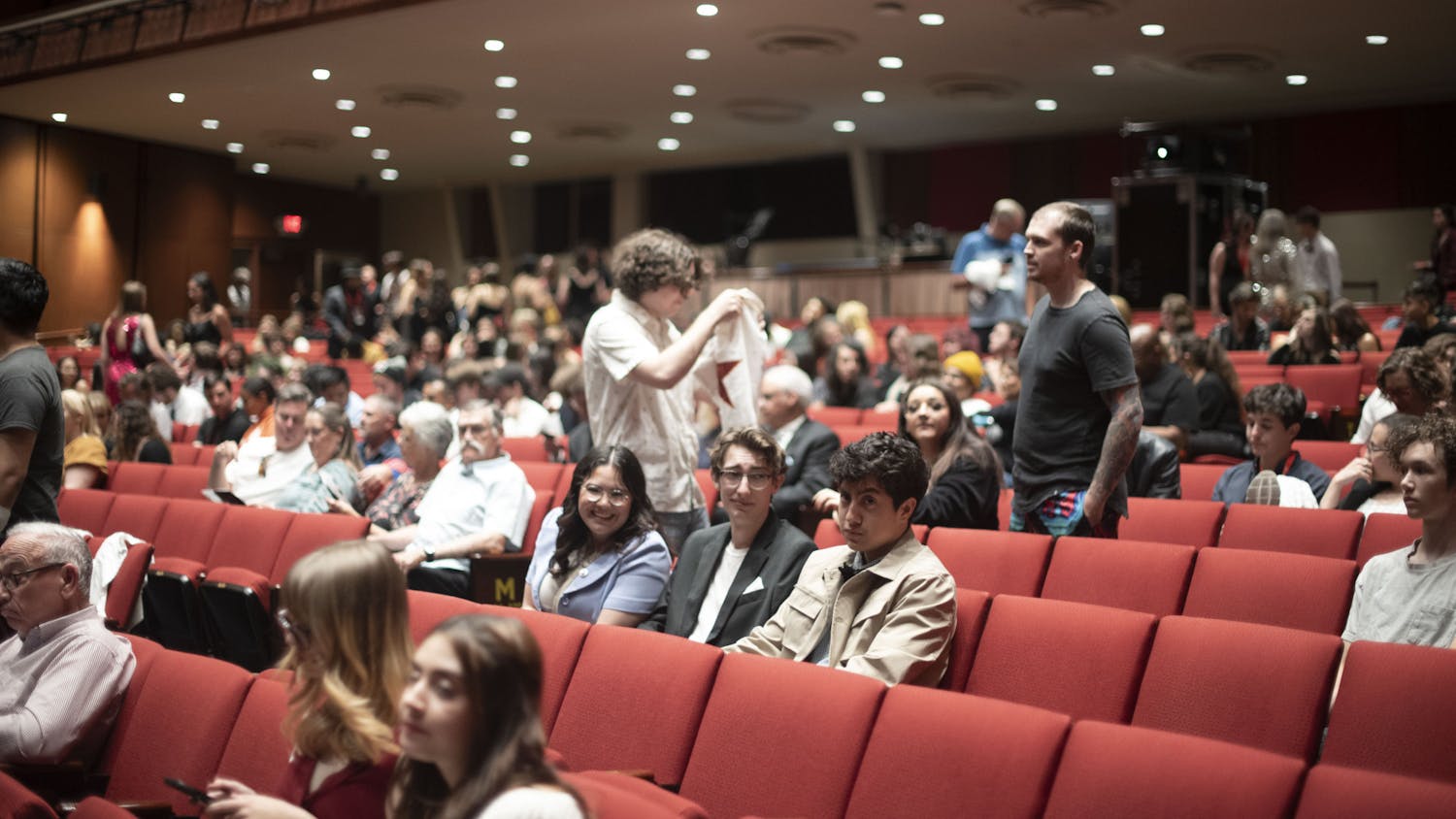Students at UNM have seen a recent spike in violence and criminal activity, bringing scrutiny to LoboAlerts and prompting those in charge of the emergency messaging system to hold a public information session last Thursday.
LoboAlerts is UNM’s fulfillment of a federal mandate under the Jeanne Clery Disclosure of Campus Security Policy and Campus Crime Statistics Act.
The Clery Act was enacted in 1990, four years after Lehigh University student Jeanne Clery was raped and murdered by a fellow student in her campus residence hall.
Under the Clery Act, all colleges and universities participating in federal financial aid programs are required to maintain and disclose campus crime statistics.
The act also requires the institution to issue timely warnings of events which have the potential to disrupt or threaten the University’s ability to conduct regular activities.
Recent weeks at UNM have seen LoboAlerts for a student being threatened with a gun on Central Avenue, and an attempted robbery at one of the on-campus residences, the latter incident later discovered to be a false report to campus police.
The event students were most affected by — the murder of UNM student Juan Romero — did not warrant a LoboAlert.
UNM’s Clery Act Compliance Officer Robert Burford explained at Thursday’s meeting that LoboAlerts are only sent out when an incident occurs within a certain geography.
“There’s what we call a Clery Geography,” Burford said.
On-campus geography includes anything on UNM’s main, north or south campuses, while non-campus geography includes UNM West and all other University property.
Burford stated that Clery Geography also includes a portion of public property surrounding campus.
“Public property boundaries are essentially the sidewalk, the street and the sidewalk on the other side,” he said.
Get content from The Daily Lobo delivered to your inbox
Only events that happened within these defined limits are reported to Clery officers, and only those events get LoboAlerts.
Burford said a LoboAlert was not sent out after Romero was shot because the incident occurred on Stanford Drive, which is not within the Clery Geography. Had the incident happened within those limits, “we would have definitely put out an alert.”
“It’s more than a technicality that we didn’t put that alert out,” Department of University Emergency Manager Byron Piatt said. “We found out about it seeing it on the news. It wasn’t reported to us.”
UNM freshman Morgan York thinks the University should redefine its campus limits.
“I think the campus is being a bit anal in regards to their boundaries,” York said. “Pretty much that whole stretch of Central might as well be part of campus, given its proximity.”
In order for a LoboAlert to go out, an incident must first be reported to UNMPD or a campus security authority — such as a resident assistant, professor or other campus staff who communicate directly with students — who will then report to UNMPD.
A description of the event is then sent to Piatt, who drafts the alert and sends it back to UNMPD for verification.
“There’s a little bit of fact-checking,” Piatt said. “There’s a little bit of a delay, it's about a 10 or 15-minute process.”
York said she would like LoboAlerts to be more reliable.
“They’re such random inconsistent messages,” she said.
York would also like to see more LoboAlerts for things that may not immediately threaten the campus.
“Alerting when protests or a significant figure is going to be on campus would interest me more than a crime,” she said, adding that hearing only about criminal activity in her community does not make her feel safer.
Burford said he has considered expanding the subject matter of LoboAlerts, wanting to send out more email advisories for non-emergency events.
Also addressed at Thursday’s meeting were other safety issues on campus, such as inadequate lighting and the inability to hear the campus alarm system from all buildings.
Burford and Piatt said they are still working out kinks, and although the Department of University Emergency has limited funding, campus safety is the number one priority.
Celia Raney is a news reporter at the Daily Lobo. She can be contacted at news@dailylobo.com or on Twitter @Celia_Raney.





